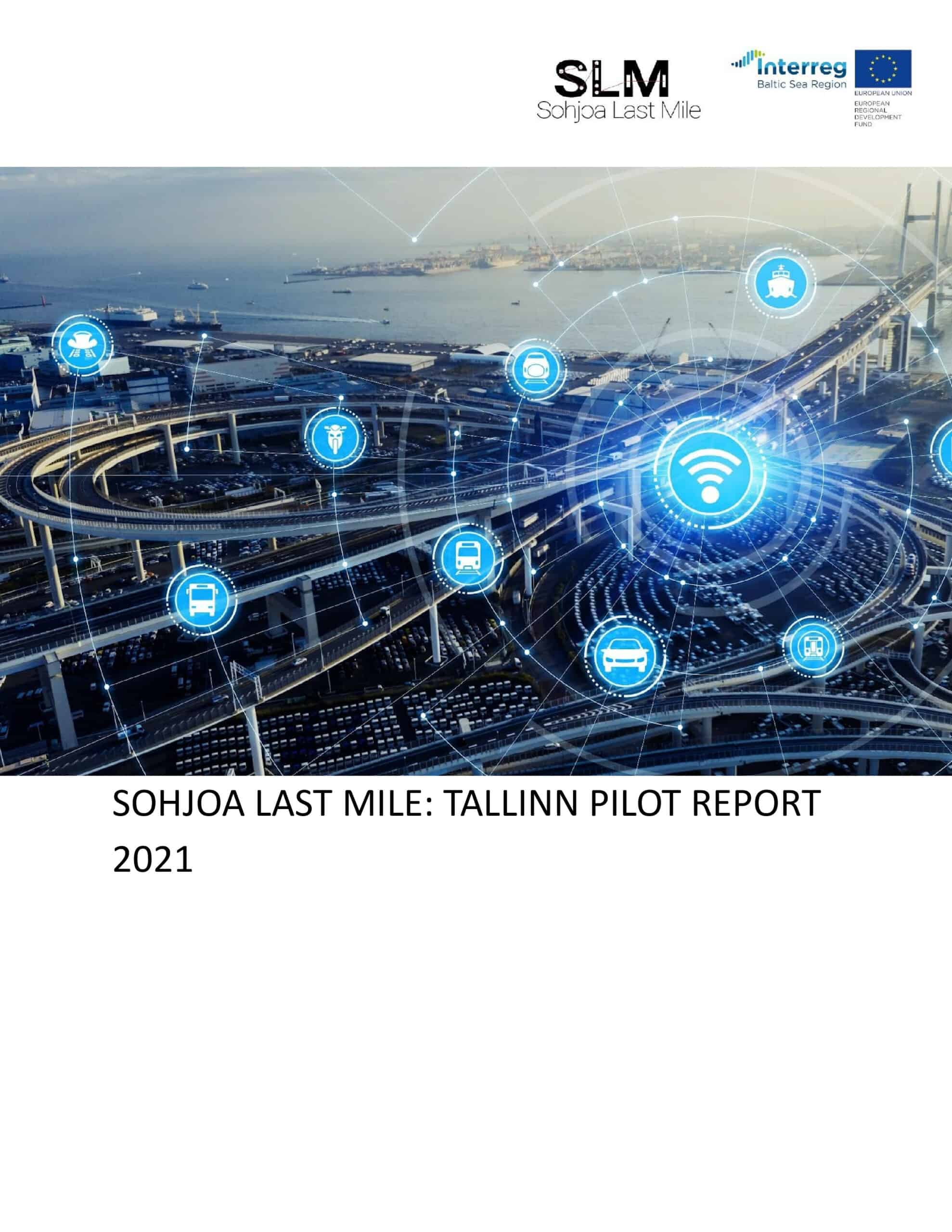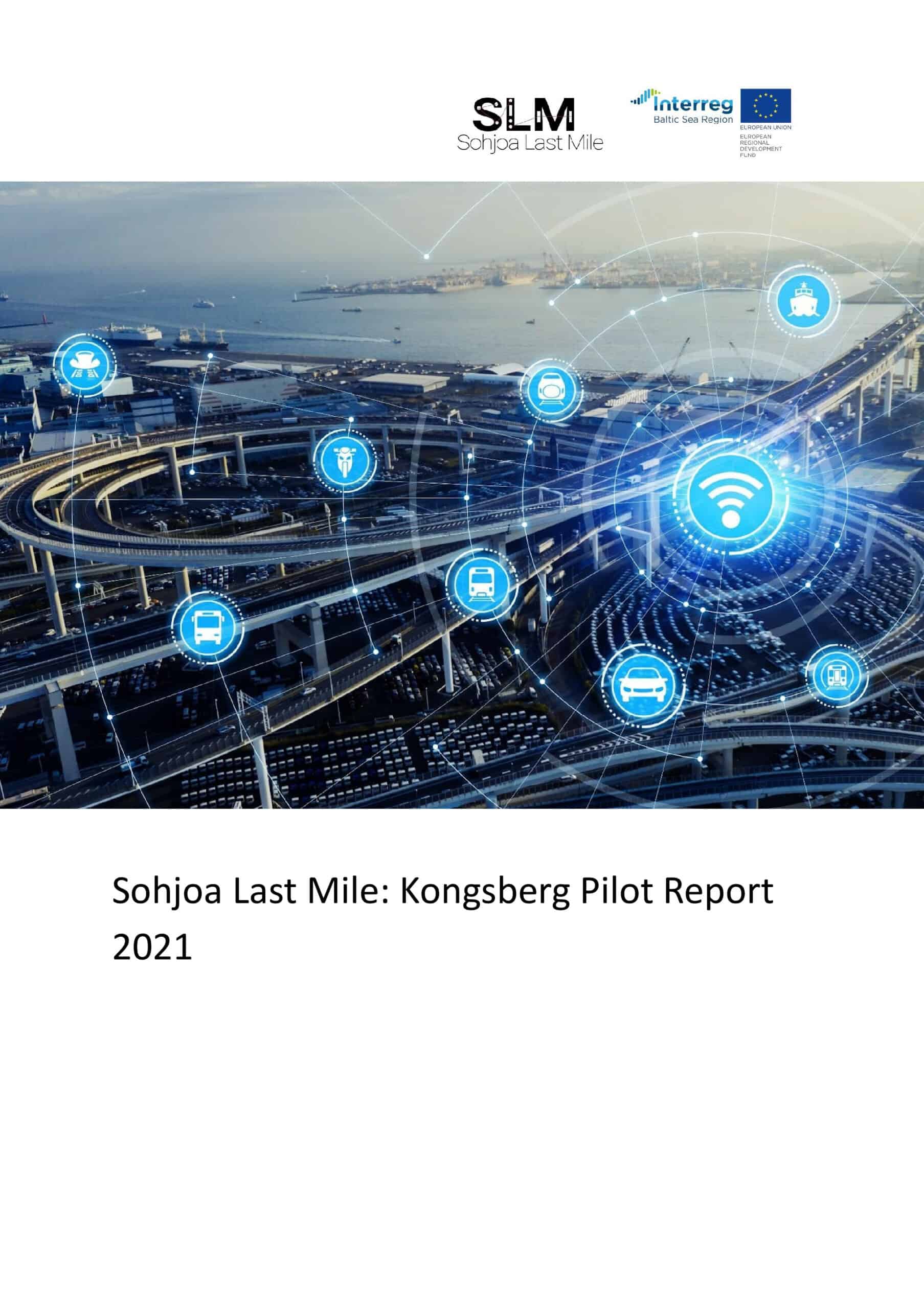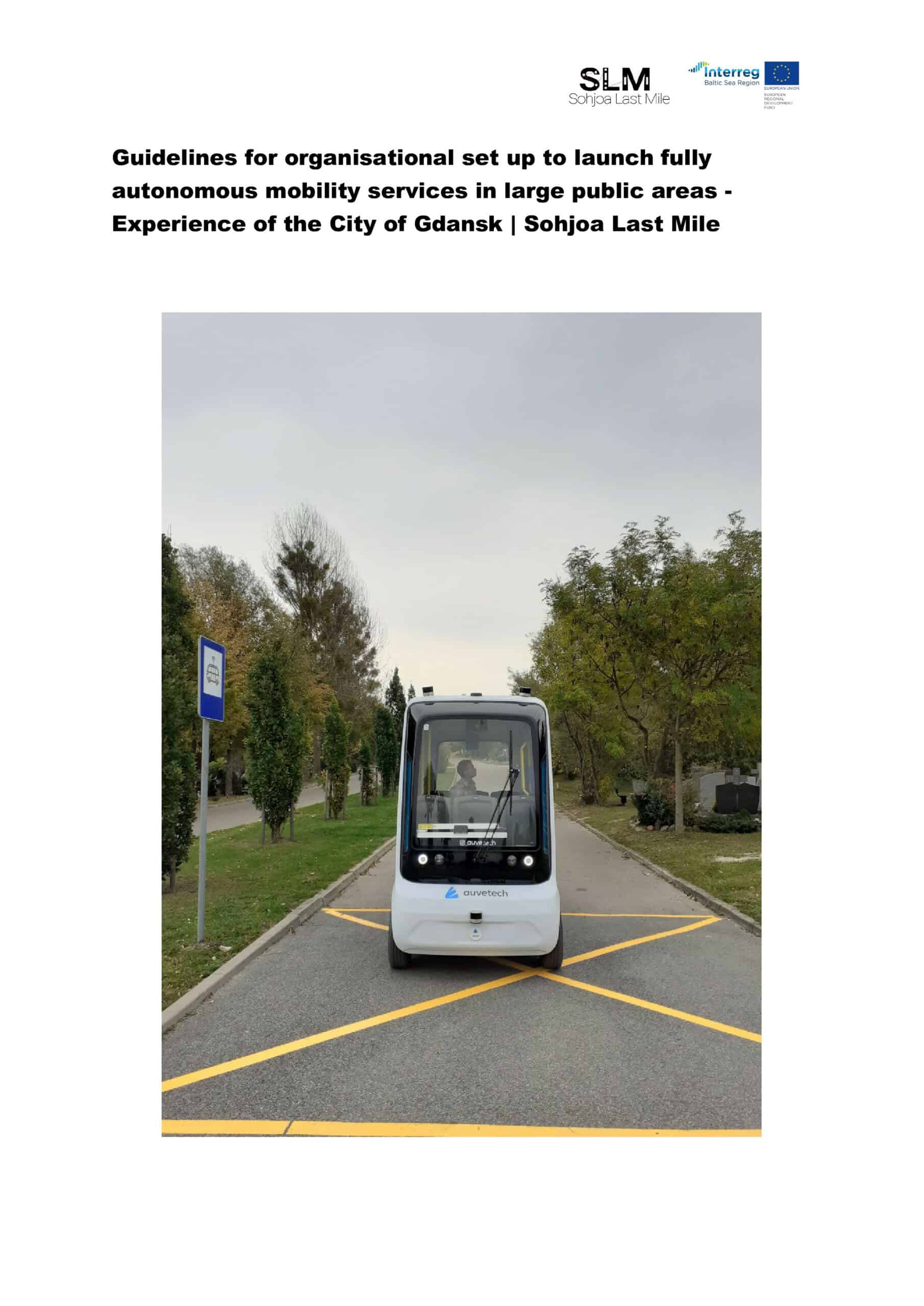Sohjoa Last Mile
Public transport is not as flexible and accessible as private cars are in the Baltic Sea region. In general, public transportation in the region is moderately used, but still, in many cities public transport can not offer competitive options for the citizens. This triggers the use of private cars for daily routines and commuting. Public transportation affects people´s well-being, traffic emissions and capacity problems as well as contributes to the climate change.
In order to tackle the traffic problems, the modal share of public transportation should be increased and more environmentally friendly transport solutions presented. Meanwhile, the use of low-emission public transportation vehicles such as biogas and hybrid buses is increasing. This provides a good basis for integrating electric automated last mile public transportation to the travel chain. Besides the problems with traffic congestion, cars as a rule, take up more space in comparison to the number of passengers. This is a challenge for at least urban areas with a high density of population.
Electric mini busses without an operator can be a game changer for public transport carriers, as the costs for the operator of a vehicle can be up to 60 % of the entire costs. Such automated shuttles could promote change in urban public transportation, in particular by providing a solution for public transport users to drive the last mile, i.e. who need an additional connection between a station and their final destination. The project´s Sohjoa Last Mile predecessor project Sohjoa Baltic aimed to increase the attractiveness of public transport by improving offered services and introducing automated driverless electric minibuses. Sohjoa Last Mile demonstrated how to run automated shuttles without a safety operator in Kongsberg (Norway), Gdansk (Poland) and Tallinn (Estonia).
Budgets
in numbers
-
0.90MillionTotal
-
0.53MillionErdf
-
0.00MillionEni + Russia
-
0.13MillionNorway
Achievements
Speedy start thanks to a strong network
Sohjoa Last Mile (SLM) continued to support the change in the Baltic Sea region in the field of urban public transportation, initiated by the Sohjoa Baltic project. This covered automated driverless electric minibuses as part of the public transport chain for first/last mile mobility needs.
Pilots enable to evaluate
The Sohjoa Last Mile project succeeded in completing all three automated vehicle pilots in Kongsberg (Norway), Tallinn (Estonia), and Helsinki (Finland) testing remote supervision/control. SLM piloting was aimed to analyse the technical capabilities and risks when driving without a safety driver. It included the human perception towards the driverless bus together with recommendations on the future language of driving, the communications network requirements for remote-control driving as well as evaluation of 5G network advantages.
In total, pilots included: 179 operational days (107 of those without operator on board), 2714 passengers (limited due to Covid) and 3522 KMs driven.
Outputs
Tallinn pilot report

Kongsberg pilot report

Gdansk pilot report

Project Stories
-
03.08.2021
Low-carbon mobility solutions to green our future
In line with the EU’s climate neutrality target, our Programme supported several initiatives tackling the diverse challenges faced by the Baltic Sea region’s transport sector. We united our efforts to make our region more accessible, better connected and less polluted, ultimately improving the overall mobility experience in the area while protecting the environment. Read how Interreg Go LNG, BSR electric and Sohjoa Baltic have contributed to green mobility and innovation in transport sectors in the region.Read full story
Partners
Metropolia University of Applied Sciences
- TownVantaa
- RegionHelsinki-Uusimaa
- CountryFinland
- RepresentativeAzat Ismailogullari
- Phone
- E-Mail
- Web
Tallinn University of Technology
- TownTallinn
- RegionPõhja-Eesti
- CountryEstonia
- RepresentativeJaanus Müür
- Phone
- E-Mail
- Web
Forum Virium Helsinki
- TownHelsinki
- RegionHelsinki-Uusimaa
- CountryFinland
- RepresentativeJari Honkonen
- Phone
- E-Mail
- Web
The City of Gdansk
- TownGdańsk
- RegionTrójmiejski
- CountryPoland
- RepresentativeMagdalena Szymanska
- Phone
- E-Mail
- Web
City of Tallinn
- TownTallinn
- RegionPõhja-Eesti
- CountryEstonia
- RepresentativeJaagup Ainsalu
- Phone
- E-Mail
- Web
The Municipality of Kongsberg
- TownKONGSBERG
- RegionBuskerud
- CountryNorway
- RepresentativeIngar Vaskinn
- Phone
- E-Mail
- Web
Zemgale Planning Region
- TownJelgava
- RegionZemgale
- CountryLatvia
- RepresentativeRaitis Madžulis
- Phone
- E-Mail
- Web
-
Project managerAzat KuitunenMetropolia University of Applied Sciences
-
Legal representativeAnna-Maria VilkunaMetropolia University of Applied Sciences
-
Financial managerUlla-Maija PekkolaMetropolia University of Applied Sciences
-
Communication managerMilla Åman KyyröMetropolia University of Applied Science



